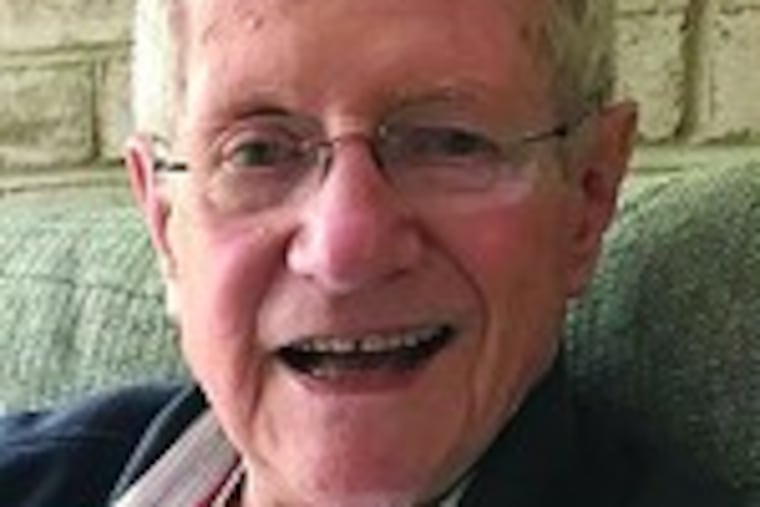LaRoy N. Castor Jr., Manhattan Project worker, and later, a cancer researcher, dies at 96
Mr. Castor had some qualms about his work on the Manhattan Project, which developed the nuclear bomb. After World War II, he became a cancer researcher so that he could help people.

LaRoy Northrop Castor Jr., 96, of Huntingdon Valley, an engineer who worked on the Manhattan Project and then became a cancer researcher in Philadelphia, died Tuesday, Dec. 1, of heart failure at Ann’s Choice, a senior facility in Warminster.
Known as “Roy,” Dr. Castor was a member of an old Philadelphia family for whom Castor Avenue is named. His parents were Miriam Ruth McCartney and L. Northrop “Dewey” Castor. His father owned Castor Insurance Co. in Northeast Philadelphia.
Born at home and raised in Holmesburg, Dr. Castor graduated second in his class at Frankford High School in 1942. He had finished a semester at Massachusetts Institute of Technology (MIT) toward a degree in physics when he enlisted in the Army.
“He wanted to serve his country,” his family said in a tribute. When tests showed an aptitude for engineering, he was sent to Virginia Tech in Blacksburg, Va., and from there to Oak Ridge, Tenn., where he worked on the Manhattan Project, a secret effort to develop the nuclear bomb during World War II.
As a process engineer, he had some responsibility for the separation of the atomic material from uranium, said his son Stephen.
“While the project was shrouded in secrecy and nobody knew what the ultimate plan was, our dad saw a famous physicist in a lab at Oak Ridge and suspected they were working on splitting the atom,” the family said.
Dr. Castor was honorably discharged in 1946 with the rank of technician fourth grade.
Because he felt conflicted about his role in helping develop the bomb, he became a cell biologist after the war. He turned to cancer research and was a pioneer in understanding cancer cell replication through the use of time-lapse photography.
“After his experience in war, he wanted to use his interest and training to help people — as opposed to harming them,” his son said.
He earned a bachelor of science degree from MIT in 1948 and a comprehensive Ph.D. in biophysics from the University of Pennsylvania in 1954.
After graduating, he worked at various times at the University of Toronto, the Johnson Foundation at the University of Pennsylvania, and the Biochemical Research Foundation at the University of Delaware.
Starting in 1966, he ran a research laboratory at the Fox Chase Institute for Cancer Research. He was widely published in scientific journals. After retiring from cancer research in 1987, he began a 15-year career in advanced programming at several computer companies. He retired in 2002.
In honor of his achievements, Dr. Castor was inducted into Sigma Xi, an honorary society for scientific researchers.
As a young man, he became an elder at Tabernacle Presbyterian Church in West Philadelphia. Later, he was a member of Abington Presbyterian Church for more than 30 years.
“My Uncle Roy was a quiet, unassuming guy of enormous intellect,” said a nephew, Bruce Castor, a former Montgomery County district attorney and county commissioner. “He was devoted to his family and his church. He was truly a great man and a patriot. I was very proud of him. We all were.”
In 1954, Dr. Castor married Virginia Hennessy Castor. They had four children, whom they raised in Huntingdon Valley.
Besides his wife and son Stephen, he is survived by children Laura Virginia Castor, LaRoy N. Castor 3d, and Lisa Castor Alvarez; six grandchildren; two brothers; and a great-grandson.
A funeral and interment will be private.
Memorial contributions may be made to Abington Presbyterian Church, 1082 Old York Rd., Abington, Pa. 19001.